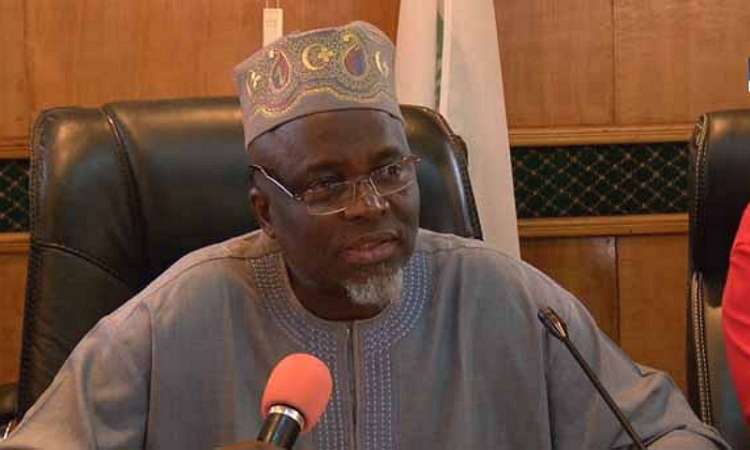By Felix Khanoba
The Registrar of the Joint Admissions and Matriculation Board (JAMB), Prof. Ishaq Oloyede, became emotional on Wednesday as he apologised publicly for technical issues that marred this year’s Unified Tertiary Matriculation Examination (UTME), affecting hundreds of thousands of candidates.
Speaking during a press briefing at the board’s headquarters in Bwari, Abuja, Oloyede accepted full responsibility for the malfunction and said affected candidates—numbering 379,997—will be notified by SMS by Thursday to reprint their exam slips ahead of rescheduled tests set for Friday and Saturday.
He disclosed that the disruption was linked to a failure in implementing updated grading software by one of JAMB’s technical partners, which impacted a total of 157 examination centres. According to him, 65 centres in Lagos affected 206,610 candidates, while 92 centres in the Owerri zone accounted for another 173,387.
“I apologise for the trauma caused the candidates and I take full responsibility for this,” Oloyede stated.
Of the 1.9 million candidates who participated in the 2025 UTME, data shows that over 1.5 million scored below 200 out of a possible 400. Official figures indicate that 1,955,069 results were processed. Only 4,756 candidates (0.24%) scored 320 and above, while 7,658 (0.39%) scored between 300 and 319—making a total of 12,414 candidates (0.63%) who reached the 300 mark.
Additionally, 73,441 candidates (3.76%) earned scores between 250 and 299, and 334,560 (17.11%) scored between 200 and 249. A further breakdown shows that 983,187 candidates (50.29%) scored between 160 and 199; 488,197 (24.97%) between 140 and 159; 57,419 (2.94%) between 120 and 139; 3,820 (0.20%) between 100 and 119; and 2,031 (0.10%) scored below 100.
Following internal investigations, the JAMB Registrar confirmed that errors occurred during the examination process. Despite the board’s usual pre-exam safeguards—including mock tests, tech simulations, and oversight by university vice-chancellors, civil society groups, software professionals, and educators—he admitted the lapses.
“This unfortunate incident represents significant self-harm to the integrity we’ve built over the years. But we remain committed to transparency, fairness, and equity. It is our culture to admit error and take responsibility,” Oloyede said.
In response to widespread concerns, the board accelerated its post-examination audit, typically carried out in June. Emergency consultations were also held with education experts, student representatives, and psychometricians to address the issue and determine a corrective path.
“We apologise, sincerely, to the Nigerian students, parents, and schools affected. While this was not a case of sabotage, the oversight by one of our two service providers was inexcusable,” he added.
Oloyede also highlighted that the highest individual score recorded in the 2025 UTME was 374—the best in the past 15 years. He acknowledged this as a sign of progress, although he noted that overall performance trends remained consistent with previous years. He attributed some of the public perception of mass failure to the software malfunction in affected zones.



